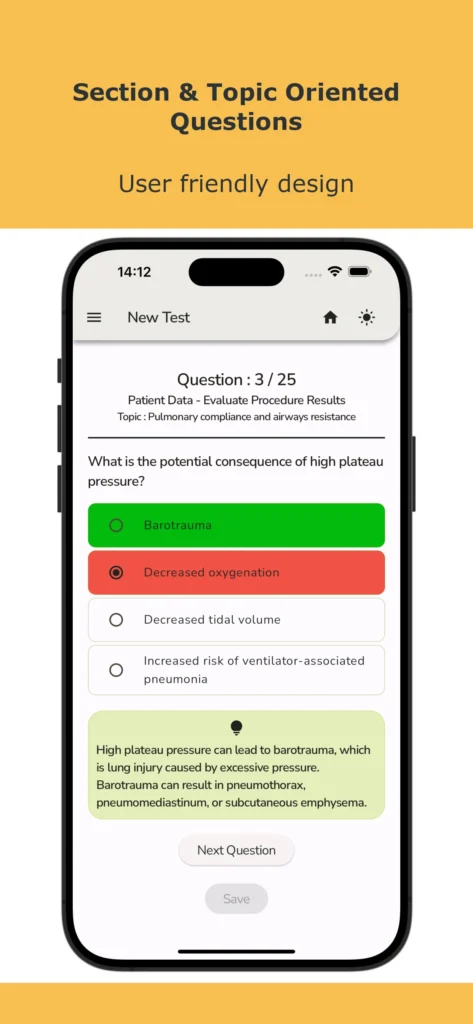Introduction to NBRC CEU Requirements
The National Board for Respiratory Care (NBRC) is the leading organization responsible for credentialing respiratory therapists in the United States. As a respiratory therapist, it is essential to stay up-to-date with the latest advancements in the field and maintain your professional competence. This is where Continuing Education Units (CEUs) come into play.
CEUs are a way for respiratory therapists to demonstrate their commitment to lifelong learning and professional development. In this section, we will explore the NBRC CEU requirements, including how many CEUs you need, how to earn them, and how to maintain your NBRC credentials.
How Many CEUs Do You Need?
The number of CEUs required by the NBRC depends on your specific credential. For Registered Respiratory Therapists (RRTs), you are required to earn 30 CEUs every five years. For Certified Respiratory Therapists (CRTs), the requirement is 15 CEUs every five years.
Earning CEUs
There are various ways to earn CEUs that are recognized by the NBRC. These include attending conferences, workshops, and seminars related to respiratory care, completing online courses, participating in research projects, and publishing articles or papers in professional journals.
It is important to note that not all CEUs are created equal. The NBRC has specific guidelines regarding the types of activities that qualify for CEUs. Make sure to review the NBRC’s guidelines to ensure that the activities you participate in are eligible for CEU credits.
Maintaining Your NBRC Credentials
In addition to earning the required number of CEUs, you must also renew your NBRC credentials to maintain your active status. The NBRC requires respiratory therapists to renew their credentials every five years.
To renew your credentials, you must complete the renewal application and pay the renewal fee. You will also need to provide documentation of your CEUs earned during the renewal period. It is important to keep track of your CEUs and maintain records of the activities you have completed.
Conclusion
Understanding the NBRC CEU requirements is crucial for respiratory therapists who want to maintain their professional credentials. By earning the required number of CEUs and renewing your credentials, you demonstrate your commitment to professional development and ensure that you stay current in the field of respiratory care.
Understanding the Renewal Process
Renewing Your NBRC Credentials
Renewing your NBRC credentials is an important step to maintain your status as a Respiratory Therapist. The NBRC (National Board for Respiratory Care) requires all Respiratory Therapists to renew their credentials every two years. This process ensures that healthcare professionals stay up-to-date with the latest advancements in the field and continue to provide high-quality care to their patients.
Understanding the renewal process is crucial to ensure a smooth and hassle-free experience. In this section, we will walk you through the steps involved in renewing your NBRC credentials.
CEU Requirements
One of the key requirements for renewing your NBRC credentials is earning Continuing Education Units (CEUs). CEUs are a measure of the educational activities that Respiratory Therapists undertake to enhance their knowledge and skills. These activities can include attending conferences, workshops, webinars, or completing online courses.
The NBRC has specific CEU requirements that Respiratory Therapists must fulfill in order to renew their credentials. As of the latest guidelines, Respiratory Therapists are required to earn a minimum of 30 CEUs during the two-year renewal period. These CEUs must be relevant to the field of respiratory care and approved by the NBRC.
Logging Your CEUs
Logging your CEUs is an essential step in the renewal process. The NBRC provides a user-friendly online platform where Respiratory Therapists can log their CEUs. This platform, known as the NBRC CEU Login, allows you to keep track of your educational activities and ensures that you meet the required CEU criteria.
When logging your CEUs, it is important to provide accurate and detailed information about each activity. This includes the name of the activity, the date attended, the number of CEUs earned, and any supporting documentation if required. By maintaining a comprehensive record of your CEUs, you can easily demonstrate your compliance with the NBRC renewal requirements.
Renewal Period
The renewal period for NBRC credentials is two years. It is important to note that the renewal period starts from the date of your initial certification or the date of your last renewal. It is your responsibility to keep track of the renewal deadline and ensure that you complete the necessary requirements within the specified timeframe.
To avoid any last-minute rush or potential lapses in your credentials, it is recommended to start planning for your renewal well in advance. This includes identifying relevant CEU opportunities, attending educational activities, and logging your CEUs in a timely manner.
Conclusion
Renewing your NBRC credentials is a vital step in maintaining your status as a Respiratory Therapist. By understanding the renewal process and fulfilling the CEU requirements, you can ensure that you stay current in your knowledge and skills. Remember to log your CEUs accurately and within the specified timeframe to avoid any complications during the renewal process. Stay proactive and plan ahead to make the renewal process a seamless experience.
Resources for Meeting NBRC CEU Requirements
Understanding NBRC CEU Requirements
If you are a respiratory therapist looking to maintain your credentials, it is essential to understand the Continuing Education Unit (CEU) requirements set by the National Board for Respiratory Care (NBRC). By meeting these requirements, you can ensure that you stay up-to-date with the latest advancements in the field and maintain your professional competence.
The NBRC requires respiratory therapists to earn a certain number of CEUs within a specific time frame to renew their credentials. These CEUs can be obtained through various educational activities, such as attending conferences, completing online courses, participating in workshops, or engaging in research projects.
It is important to note that the specific CEU requirements may vary depending on the type of credential you hold. For example, Registered Respiratory Therapists (RRTs) are required to earn a different number of CEUs compared to Certified Respiratory Therapists (CRTs).
Online Platforms for CEU Courses
There are several online platforms that offer CEU courses specifically designed for respiratory therapists. These platforms provide a convenient and flexible way to earn CEUs from the comfort of your own home or office. Some popular online platforms for CEU courses include:
- NBRC CEU Opportunities
- AARC Continuing Respiratory Care Education
- Respiratory Therapy Zone CEU Courses
These platforms offer a wide range of courses covering various topics in respiratory therapy. They are often accredited by the NBRC, ensuring that the courses meet the necessary standards for continuing education.
Conferences and Workshops
Attending conferences and workshops is another excellent way to earn CEUs while staying updated with the latest developments in respiratory therapy. These events provide opportunities to learn from industry experts, network with peers, and gain valuable insights into emerging trends and technologies.
The NBRC itself organizes conferences and workshops that offer CEUs. Additionally, professional organizations such as the American Association for Respiratory Care (AARC) and state respiratory therapy associations often host conferences and workshops that qualify for CEUs.
Research and Publications
Engaging in research projects and publishing articles in reputable journals can also earn you CEUs. The NBRC recognizes the value of research in advancing the field of respiratory therapy and allows respiratory therapists to earn CEUs for their contributions.
By conducting research and publishing your findings, you not only contribute to the body of knowledge in respiratory therapy but also fulfill your CEU requirements.
Conclusion
Meeting the NBRC CEU requirements is crucial for respiratory therapists to maintain their credentials and stay current in their field. By utilizing the resources mentioned above, such as online platforms, conferences, workshops, and research opportunities, you can easily earn the required CEUs while enhancing your knowledge and skills as a respiratory therapist.
Comparison: NBRC Credential vs State License Renewal
Understanding the Difference
When it comes to maintaining your respiratory therapy credentials, it’s important to understand the difference between the requirements set by the National Board for Respiratory Care (NBRC) and those set by your state for license renewal. While both are essential for your career, they have distinct criteria and processes.
NBRC Credential Renewal
The NBRC is the national certifying body for respiratory therapists in the United States. It offers various credentials, including the Registered Respiratory Therapist (RRT) certification. To maintain your NBRC credential, you must fulfill specific requirements, including continuing education units (CEUs).
CEUs are a way to ensure that respiratory therapists stay up-to-date with the latest advancements in the field. The NBRC requires RRTs to earn a certain number of CEUs within a specific timeframe, typically every five years. These CEUs can be obtained through various educational activities, such as attending conferences, completing online courses, or participating in workshops.
It’s important to note that the NBRC has its own system for tracking CEUs, known as the NBRC CEU system. RRTs can log in to their NBRC account to access their CEU transcript, view their progress, and submit any additional CEUs they have earned.
State License Renewal
In addition to maintaining your NBRC credential, respiratory therapists must also comply with their state’s requirements for license renewal. Each state has its own licensing board or agency that sets the criteria for license renewal.
While the specific requirements may vary from state to state, they often include a combination of CEUs, clinical practice hours, and/or passing an exam. Some states may also require additional documentation, such as proof of CPR certification or professional liability insurance.
It’s crucial to stay informed about your state’s specific requirements for license renewal. This information can usually be found on your state’s licensing board website or by contacting the board directly.
Key Differences
One of the key differences between NBRC credential renewal and state license renewal is the frequency of renewal. NBRC credentials typically need to be renewed every five years, while state licenses may have different renewal periods, such as every two years.
Another difference is the number of CEUs required. The NBRC sets a specific number of CEUs that RRTs must earn within the renewal period, whereas state requirements may vary. Some states have a fixed number of CEUs, while others have a range or allow for alternative activities, such as research or teaching, to fulfill the requirement.
Additionally, the NBRC CEU system is separate from the state licensing board’s system. While the NBRC tracks CEUs through its own platform, RRTs must also ensure that they meet their state’s CEU requirements and provide the necessary documentation.
Conclusion
Understanding the difference between NBRC credential renewal and state license renewal is crucial for respiratory therapists. Both processes have their own set of requirements and criteria, and it’s essential to stay informed and fulfill them in a timely manner. By maintaining your NBRC credential and complying with your state’s license renewal requirements, you can ensure that you are practicing respiratory therapy within the legal and professional standards.
Benefits of Maintaining NBRC Credentials
Why Maintain NBRC Credentials?
As a respiratory therapist, maintaining your credentials is essential for a successful and fulfilling career. The National Board for Respiratory Care (NBRC) is the leading organization that sets the standards for respiratory therapy practice in the United States. By maintaining your NBRC credentials, you can enjoy a wide range of benefits that will enhance your professional growth and open up new opportunities.
1. Professional Recognition and Credibility
One of the primary benefits of maintaining your NBRC credentials is the professional recognition and credibility it brings. Being certified by the NBRC demonstrates your commitment to upholding the highest standards of respiratory therapy practice. It showcases your expertise, experience, and dedication to providing quality care to patients.
2. Career Advancement
Maintaining your NBRC credentials can significantly boost your career advancement opportunities. Many employers prefer hiring respiratory therapists who hold NBRC credentials, as it assures them of your competence and knowledge in the field. With your credentials, you may be eligible for promotions, salary increases, and leadership roles within your organization.
3. Continuing Education Units (CEUs)
The NBRC requires respiratory therapists to earn a certain number of Continuing Education Units (CEUs) to maintain their credentials. By staying up-to-date with the latest advancements and best practices in respiratory therapy, you can provide the highest level of care to your patients. Additionally, participating in continuing education activities allows you to expand your knowledge, improve your skills, and stay current with industry trends.
4. Networking and Professional Development
Maintaining your NBRC credentials provides opportunities for networking and professional development. You can connect with other respiratory therapists, attend conferences, workshops, and seminars, and join professional organizations. These interactions can help you stay connected with the respiratory therapy community, exchange ideas, and learn from experts in the field.
5. Job Security
In today’s competitive job market, having NBRC credentials can provide you with a sense of job security. By maintaining your credentials, you demonstrate your commitment to professional growth and continuous learning. This dedication makes you a valuable asset to your employer, increasing your job stability and reducing the risk of layoffs or downsizing.
Conclusion
Maintaining your NBRC credentials is crucial for respiratory therapists who want to excel in their careers. The benefits of maintaining your credentials include professional recognition, career advancement opportunities, access to continuing education, networking and professional development, and job security. By staying committed to your professional growth and keeping up with the evolving field of respiratory therapy, you can provide the best possible care to your patients and enjoy a successful and fulfilling career.
Conclusion
In conclusion, understanding the NBRC CEU requirements is essential for respiratory therapists looking to maintain their credentials and stay up-to-date in their field. By earning the required number of CEUs and fulfilling the specific criteria set by the NBRC, respiratory therapists can ensure that they are meeting the standards of professional development and continuing education. It is important to regularly check the NBRC website and stay informed about any updates or changes to the CEU requirements. Remember to keep track of your CEUs and maintain documentation to provide evidence of completion if requested during the renewal process. By staying proactive and engaged in continuing education, respiratory therapists can enhance their knowledge, skills, and ultimately provide the best possible care to their patients.








